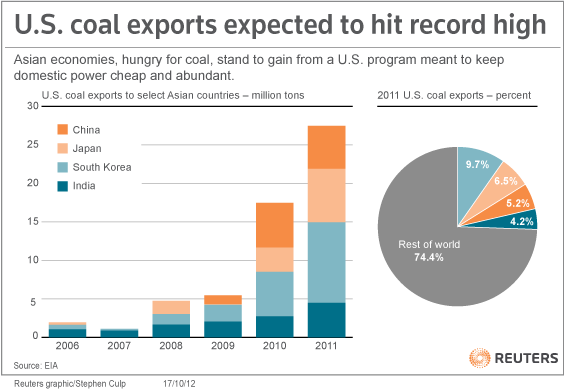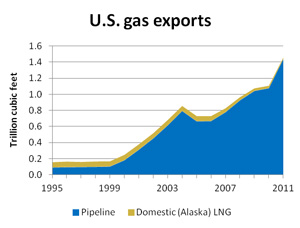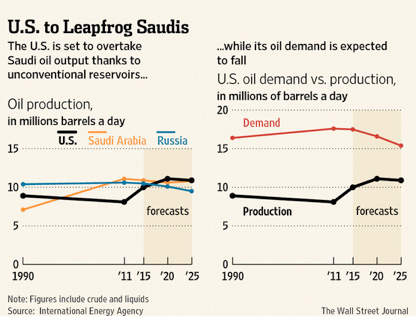
The Selling of Energy Independence
Any analysis of domestic fossil fuel production and use must acknowledge
that independence for U.S. energy has not been the national goal. Contrary to utopian dreamers and radical environmentalists,
oil, natural gas and coal are the backbone of power in any modern economy. This power extends both to the fuels themselves
and to the political security that is required for any economy to prosper. Therefore, it seems counterproductive to encourage
corporatist to export our own precious resources for the mere motive of higher profits. Unfortunately, their ill-conceived
greed is at the core of much of our countries instability.
Often ignored, coal was once the dominate resource in the generation of electricity. The utterly destructive
and suicidal EPA regulations and Obama’s determination to bankrupt the coal industry has put into motion an export strategy
that threatens the entire utility sector.
“Although it remains the country’s largest private sector provider
of jobs, the U.S. coal industry is hurting. Domestic utilities are turning to lower-priced natural gas. Environmental opponents
are working hard to keep the mineral in the ground.
The idea of expanding exports to the world’s biggest customers —
currently China, the Netherlands (a large transshipment point), the U.K., South Korea and Brazil — sounds good. And
the U.S. Energy Information Administration (EIA) reports shipments of 6.3 million short tons of steam coal and 7.4 million
short tons of metallurgical coal in March set a monthly record. Increased Asian demand contributed to the standout month.”
The
absurd notion at clean coal is impossible; drive this train directly to ports that ship our own most prolific natural resource
overseas. So much for national security considerations and who in their right mind thinks that advance scrubbers will be used
in all the Chinese plants being built.

Natural gas is the new boom fuel, especially because of the questionable
hydrofracking process. Leaving aside the risks to our finite water aquifer, extraction
from deep field using this fracking method is the primary argument to drill. In the essay, Hydrofracking Boom or Bust, cites Deborah Rogers, points out the most significant economic consequence from hydrofracking. "Exporting is a last ditch effort to shore up a failing balance sheet. Exportation
will drive the price higher in the U.S. There’s no doubt about it. The question is how high will it go. When you are
producing a commodity and have produced it to such a high extent, you want to find someone who will buy it, and in this case,
it will be the Asians."
The Wall Street Journal reports
how this economic model will take place in, U.S. Approves Expanded
Gas Exports.
"The decision reflects a turnaround in the
U.S. energy trade. Five years ago, many companies built natural-gas import terminals, anticipating greater U.S. demand for
imported fuel.
Proponents of greater exports, including the oil and gas
industry, say that exporting inexpensive natural gas will help the U.S. trade balance, help advance the adoption of clean-burning
fuels around the world and shore up energy-poor U.S. allies."
Let’s
be real. The corporatist only care about the margins they can squeeze out of any resource extracted from mother earth. Importing
when the price is right or exporting when the world price goes the other way, but never any concern about energy INDEPENDENCE
for our own people and country.

Now look at the grand daddy of all, petroleum. The Oil Roustabout Economy explains the way the oil policy actually plays out. Virtually no real apprehension
for domestic oil autonomy is factored into the economic schemes, that drive the economic, political and foreign policies,
which keep the global a permanent tinderbox. "Remember that drilling in Anwar is prohibited, while waging war for oil
is celebrated." However,
the scale of refining raw crude into a range of utilitarian end user products, lends merit to the resale for export, especially
if the original crude comes from an imported source. A valid benefit is achieved by enhancing a natural resource, with value
added functionality for exporting. Nonetheless, draining your own oil fields for an immediate infusion of short-term profit,
only hastens the day when domestic oilfields run dry.
The Washington Post illustrates the latest insanity coming out of the political class servants
of the oil barons. The article, U.S. oil exports have been
banned for 40 years. Is it time for that to change?, has a chilling message.
"Some people think so — especially now that the United
States is producing more oil than it has in decades. Overturning the ban, in theory, would allow companies to sell even more
oil and keep expanding.
On Tuesday, Sen. Lisa Murkowski (R-Alaska) gave a speech at the Brookings Institution calling on the Obama administration and Congress
to loosen restrictions on crude-oil exports in order to boost domestic production. "We need to act," she said, "before
the crude export ban raises problems and hurts American jobs." Jack Gerard, the head of the American Petroleum Institute,
expressed similar sentiments later in the day."
Ah, that long journey to save jobs cry is most flexible depending where
the campaign contributions come from. When was the last time you heard a national debate on the necessity to conserve and
the prudent use of our own energy resources, strictly for domestic usage?
Not in this lifetime, instead of exporting our natural gas overseas, what happened to How to Convert the Country to Natural
Gas, by T. Boone Pickens. Read the Pickens Plan and ask where are all those converted from diesel to LNG trucks? Folks, the selling of our coal, gas and oil resources for export are more important
to the internationalists that own the corporate businesses, which control the global resources, than true national energy
independence. It is that simple. The establishment plutocrats are the designers, perpetuators and exploiters of an American
economy that is held hostage to energy extortion. Not until this pattern is broken, will genuine prosperity return.
James Hall – January 29, 2014
Subscription sign-up for the BATR RealPolitik Newsletter
Discuss or comment about this essay on the BATR Forum